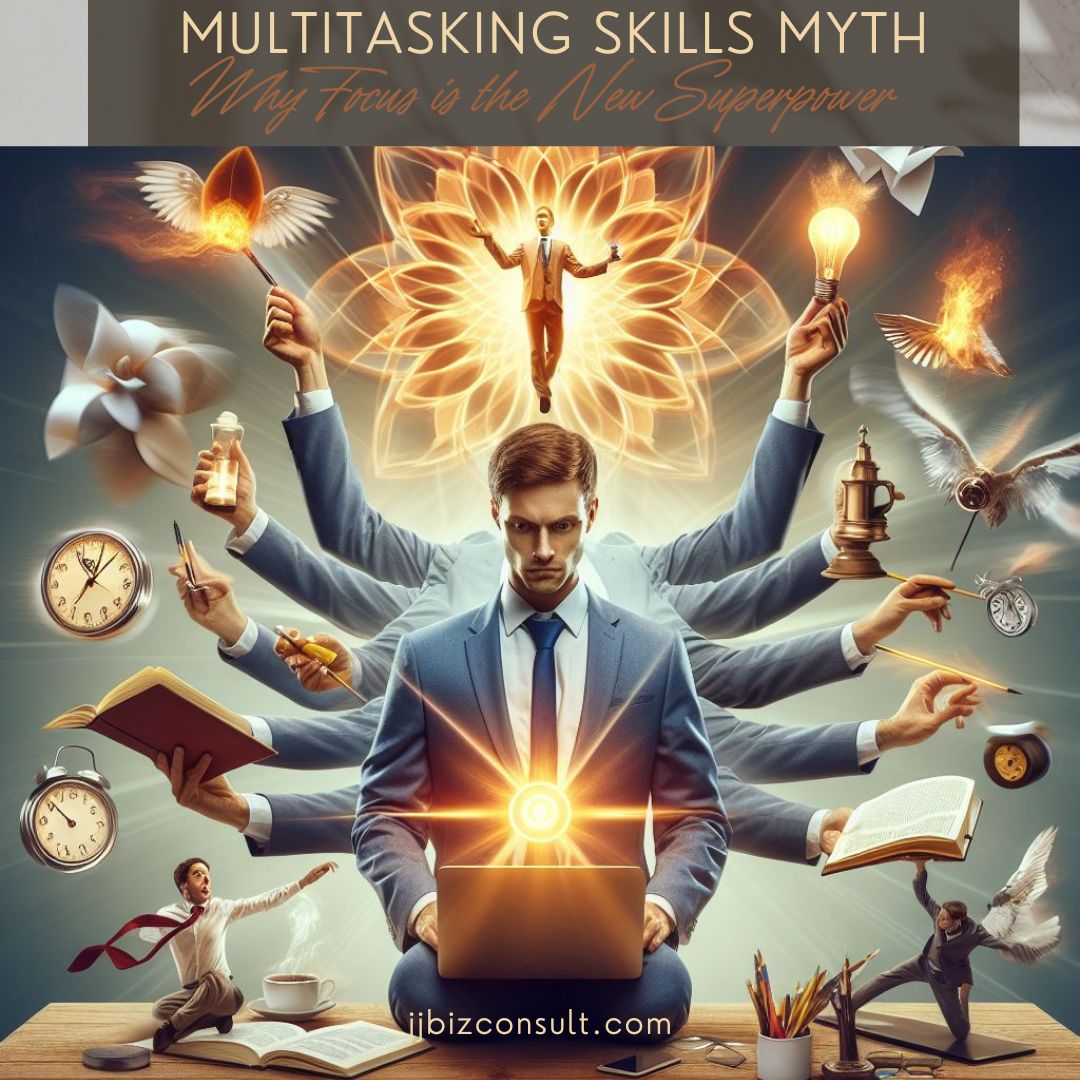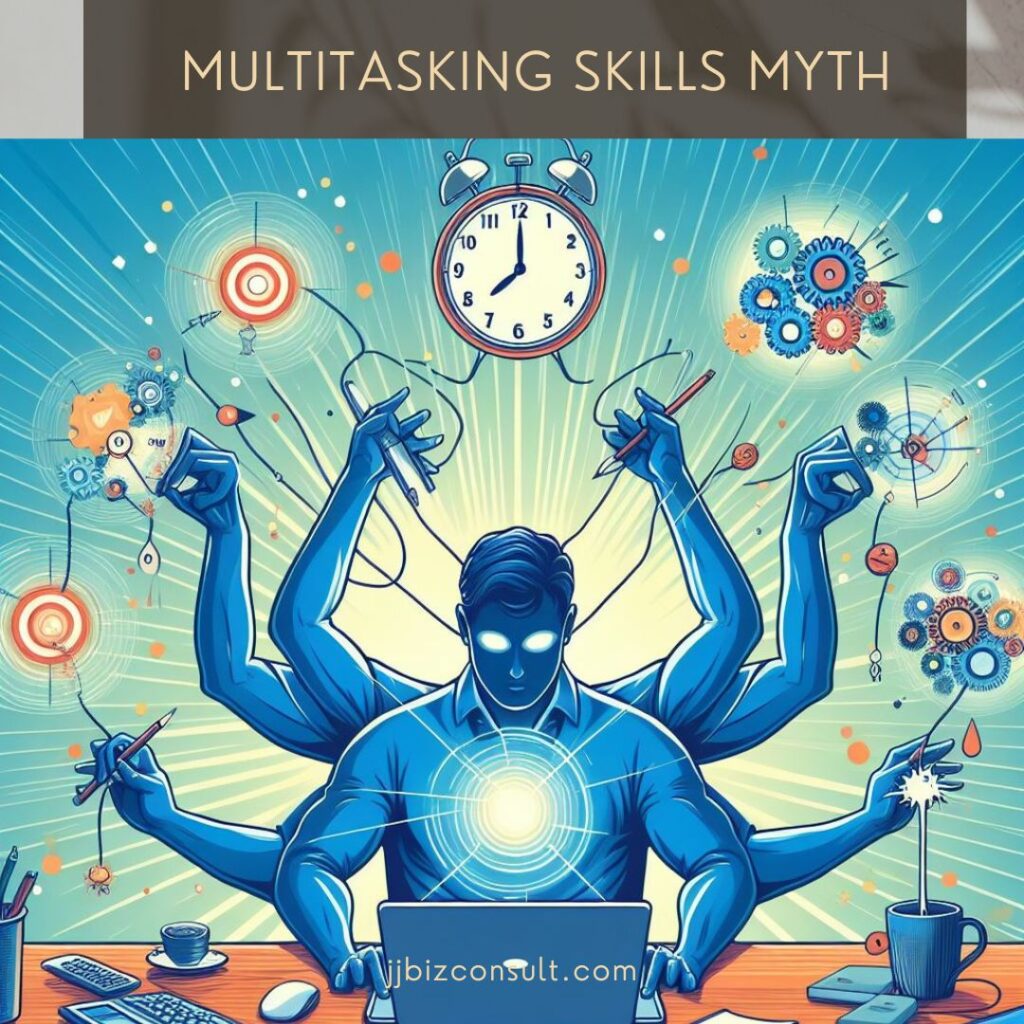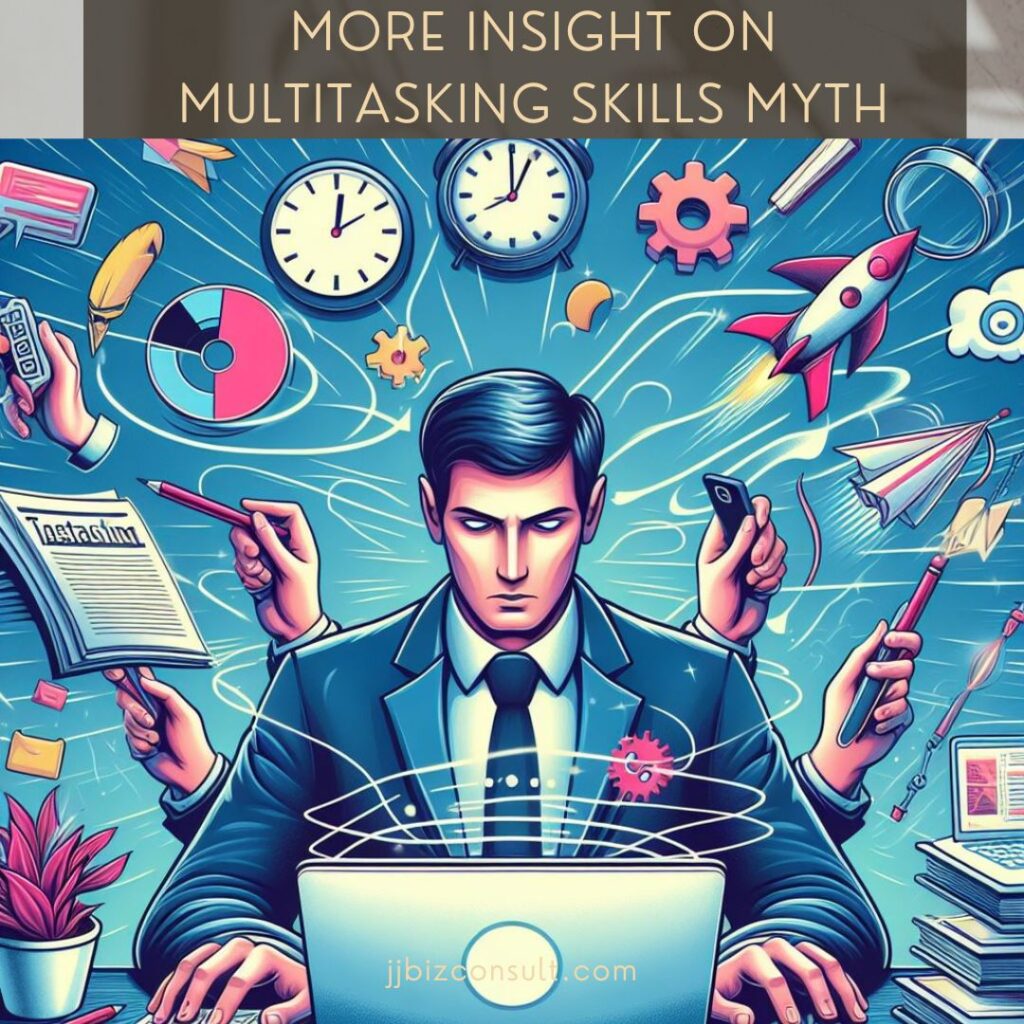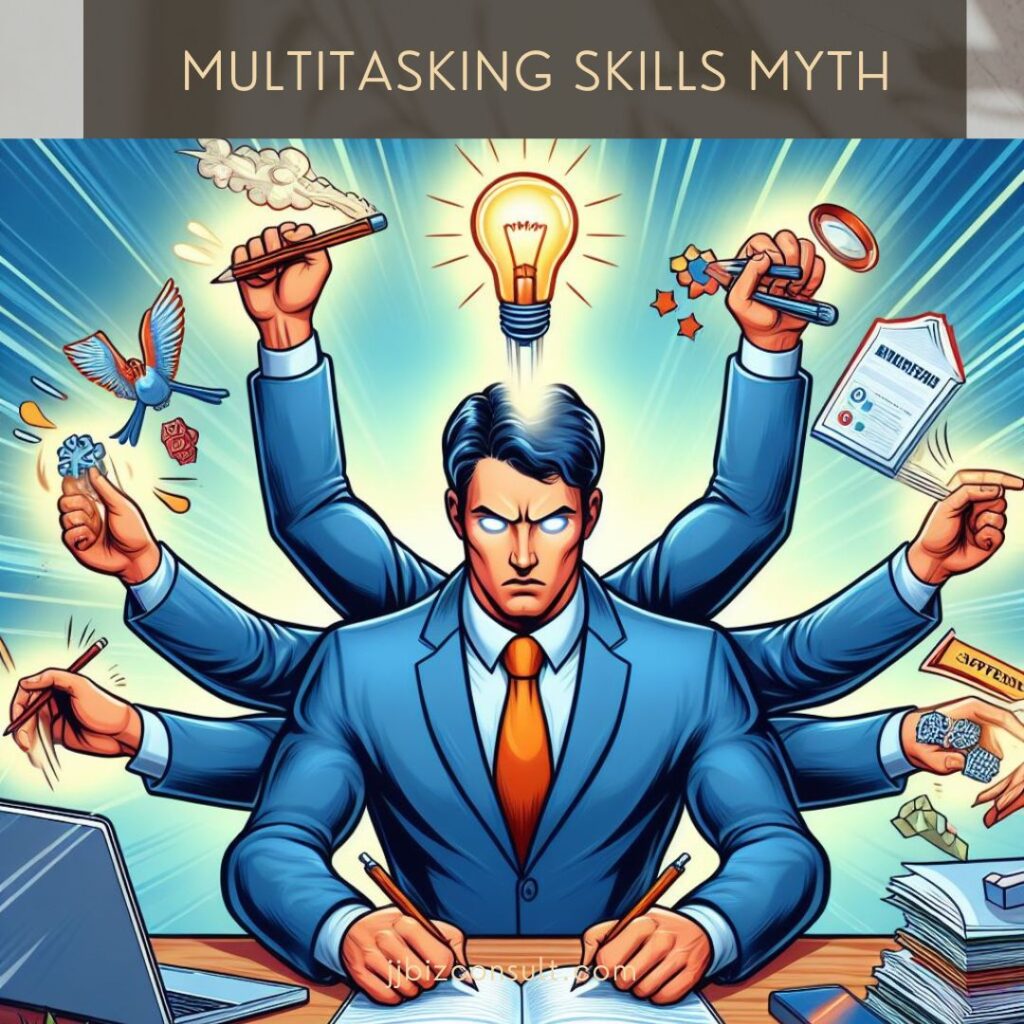
Multitasking Skills Myth: Why Focus is the New Superpower
Multitasking Skills Myth: The modern workplace glorifies the multitasker. Job descriptions overflow with demands for applicants who can juggle a dozen tasks at once, all while maintaining peak efficiency. It’s enough to make you wonder if employers are looking for circus performers or actual employees. But what if this relentless multitasking skills obsession is actually hindering our performance, not helping it?
The Multitasking Skills Myth:

New research suggests that our constant state of information overload might be crippling our ability to focus. A study by Michigan State University found a link between excessive social media use and impaired decision-making—a hallmark of impulsive behaviors. This echoes other research highlighting how internet usage encourages rapid attention-switching rather than sustained focus.
The 2.5% Reality:
Here’s the surprising truth: only 2.5% of people can truly multitask effectively. When we continually shift focus between tasks, especially complex ones, we become less efficient and more prone to errors. This mental juggling act, known as the switch cost effect, leads to burnout, decreased concentration, and ultimately, poorer quality work. Psychologist David Meyer estimates that task-switching can cost us a whopping 40% of our productive time!
Multitasking Skills Myth: Air Traffic Control vs. Cognitive Overload:
Think of it like this: imagine an air traffic controller bombarded with information from multiple flights simultaneously. The cognitive overload could lead to disastrous consequences. Similarly, our brains struggle when we constantly switch between tasks, leaving us mentally fatigued and less effective.
The Rise of “Flow”:
In the age of Artificial Intelligence, our ability to focus is more important than ever. AI excels at handling information overload. But to make sound decisions and navigate this rapidly changing world, we humans need to cultivate a state of “flow.”
What Is Flow?
Flow is a psychological state of complete immersion in an activity. It’s characterized by focused concentration and a sense of energized enjoyment. When we’re in flow, time seems to fly, and our productivity soars. Ben Angel’s new book, “The Wolf Is At The Door,” explores the challenges of achieving flow in a world brimming with digital distractions.
So, next time you’re tempted to multitask, consider whether it’s truly enhancing your productivity or just adding to the noise. Focus, my friend, is the new superpower! 🚀🔍🧠
More insight on Multitasking Skills Myth

Let’s delve deeper into the Multitasking Skills Myth and explore why it’s not as effective as it seems:
- **The Multitasking Myth Debunked:
- Multitasking, while it may appear to make you more productive, actually does the opposite.
- It hampers your ability to focus, reduces efficiency, increases stress, and lowers the quality of your work.
- When we perceive multitasking, we’re often engaging in rapid task-switching. Each switch splinters our attention, leading to decreased accuracy and efficiency.
- Brain science reveals that when attention is divided, the quality of work suffers. Our brains are wired to focus on one task at a time, and this focus is what leads to successful outcomes.
- Hidden Costs of Multitasking:
- Beyond inefficiency in output, multitasking has hidden costs.
- One significant cost is increased stress and mental fatigue. Juggling multiple tasks places a heavy cognitive load on the brain, leading to quicker burnout and reduced overall productivity.
- This heightened state of mental juggling triggers stress responses, impacting both mental and physical well-being.
- Quality Over Quantity:
- In a professional setting, it might be tempting to showcase your multitasking skills.
- However, the true measure of professional efficacy lies in the quality of work, not the quantity of tasks handled simultaneously.
- Shift the focus from impressing with the number of tasks to impressing with the thoroughness and quality of your work on a singular task.
- This approach enhances output quality and reduces the likelihood of errors.
- Embrace Single-Tasking:
- Instead of multitasking, embrace the power of single-tasking.
- Allow your brain to fully engage with each task, leading to better concentration and improved outcomes.
- Optimize productivity by understanding the science behind why multitasking might not be the answer.
Remember, focus is the new superpower! 🚀🔍🧠 If this perspective resonates with you, feel free to share your thoughts or experiences with multitasking in the comments. And don’t forget to subscribe for more insights that challenge conventional wisdom!

Some Tips for Single-Tasking
Single-tasking can significantly boost your productivity and focus. Here are some practical tips to help you embrace the power of doing one thing at a time:
- Create a Distraction-Free Zone:
- Get rid of distractions, including your phone, notifications, and other interruptions.
- Silence notifications, put your phone out of sight, or consider using noise-canceling headphones to tune out distractions.
- Avoid context switching by dedicating focused time to a single task.
- Start Small and Set a Timer:
- Begin with small, manageable tasks.
- Set a timer for a specific duration (e.g., 25 minutes using the Pomodoro technique) and focus solely on that task during that time.
- Gradually increase the duration as you build your single-tasking muscle.
- Identify Priorities and Allocate Time:
- Choose 2-3 top priorities for the day.
- Schedule dedicated time to focus on each priority when your concentration is sharpest and distractions are minimal.
- Consider using time blocking to allocate specific time slots for different tasks.
- Cut Distractions:
- Silence social media notifications and put your phone on “do not disturb” mode.
- Place your phone out of view to resist the urge to check it frequently.
- Create a clutter-free workspace to minimize visual distractions.
- Reflect and Adjust:
- Regularly reflect on your single-tasking approach and tweak it as needed.
- Experiment with different techniques, such as time blocking or sensory anchors (like focus music playlists), to enhance your focus.
Remember, single-tasking allows you to give your full attention to each task, leading to better outcomes and reduced stress. Start small, be patient with yourself, and enjoy the benefits of focused productivity! 🚀🔍🧠
Deeper Dive: The Multitasking Myth in Action
- Here’s a link to the study conducted by Michigan State University that sheds light on the multitasking myth: (Title: “The myth of multitasking: Research says it makes us less productive and increases mistakes” by Karen L. Pace, Michigan State University Extension, March 31, 2017) This study highlights the negative effects of multitasking on productivity and accuracy.
Remember, quality work often stems from undivided attention! 🚀🔍🧠
The Fastest Shrinking Jobs Due to Tech Challenge




